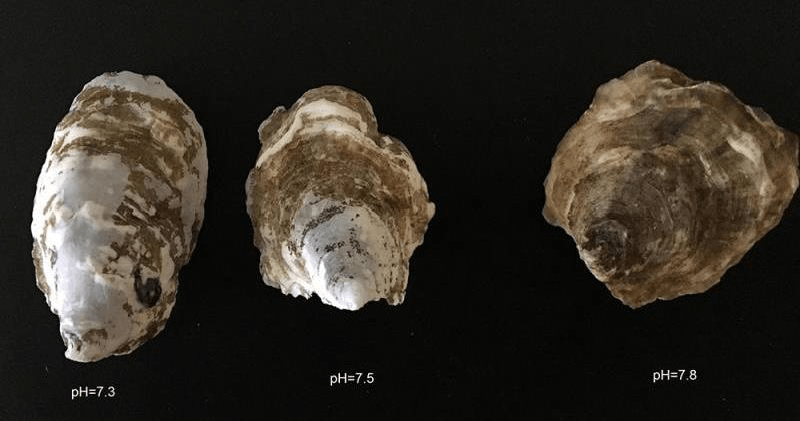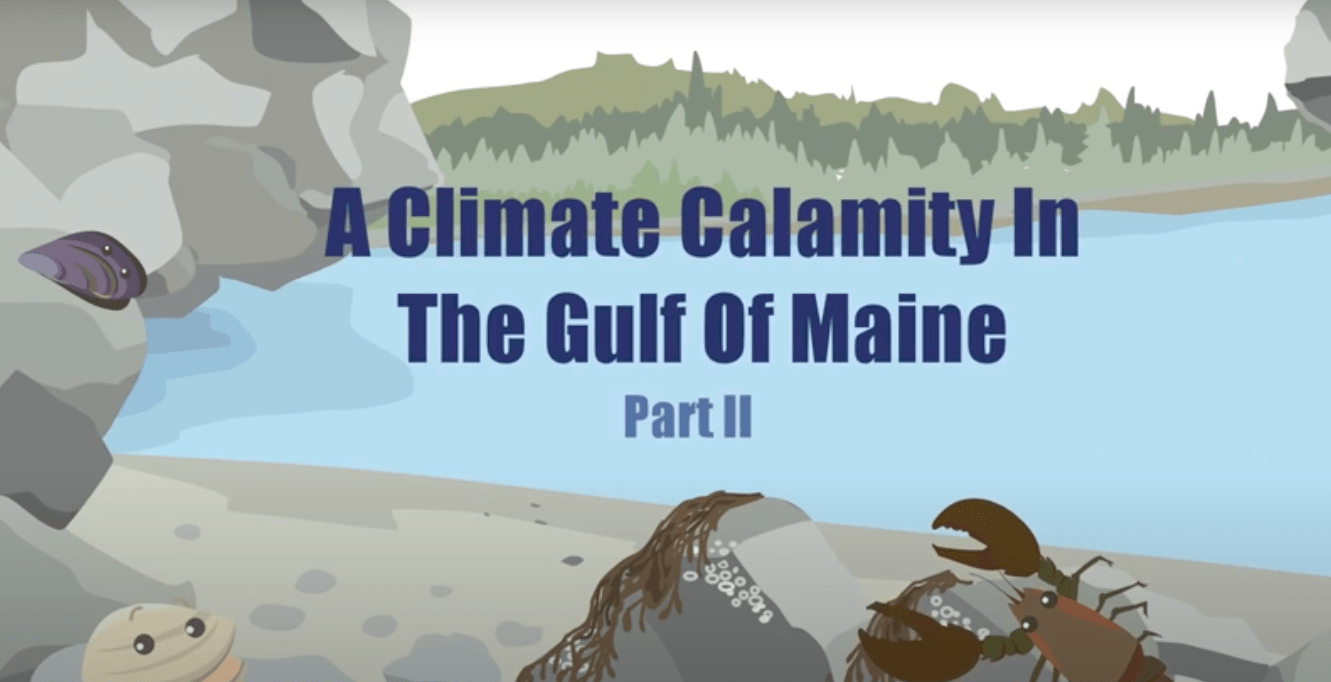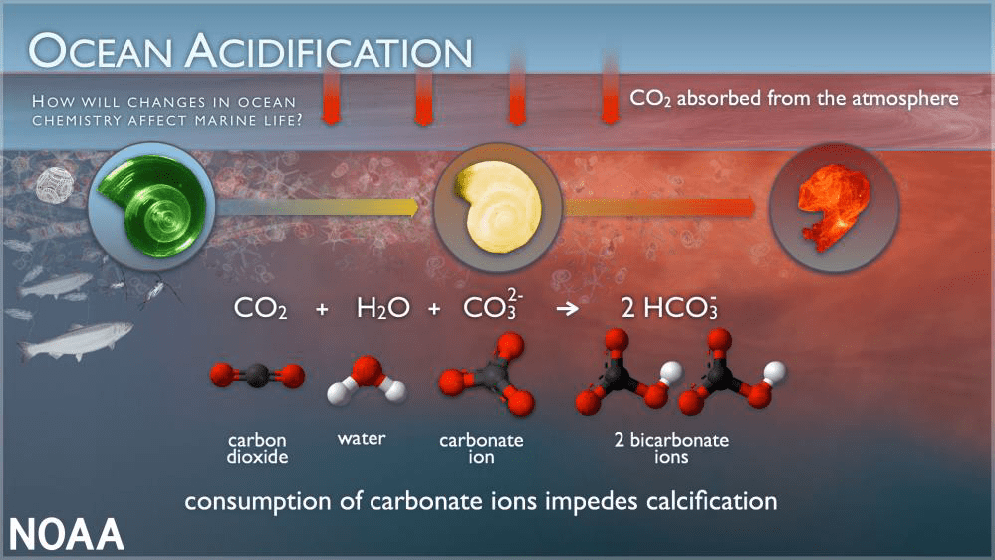Ocean Acidification
Changes in Seawater Chemistry
Valued at over $800 million, Massachusetts’ seafood industry is at an all-time high, with lobsters, scallops, and oysters leading the way. The same seafood we enjoy at our dinner table, however, is threatened due to changes in seawater chemistry.
Carbon dioxide (CO₂) is a natural greenhouse gas that traps heat in the atmosphere, keeping Earth at a livable temperature. However, burning fossil fuels, such as coal, oil, and natural gas, releases excessive amounts of CO₂ emissions into the atmosphere, which leads to more heat being trapped close to Earth’s surface. The oceans absorb about 30% of this atmospheric CO₂. In the past 30 years, the oceans have absorbed four times the amount of CO₂ compared to the Industrial Revolution baseline.
When atmospheric CO₂ dissolves in seawater it creates carbonic acid, which makes the water more acidic. This reduces the amount of carbonate available in the water. Since organisms, such as shellfish, crustaceans, and corals rely on carbonate to build their shells, ocean acidification has been shown to cause many species to grow more slowly and build thinner shells, leaving them more vulnerable. In more extreme conditions, shells begin to dissolve. Since cold water can absorb more CO₂, oysters and scallops in the chilly waters of the Gulf of Maine are already experiencing the effects of ocean acidification.

Ocean acidification can also significantly impact the development of species that do not build shells, such as local summer flounder and squid, particularly at the young larval stages of growth.
While many organisms experience the negative effects of ocean acidification, seaweeds and eelgrass have shown enhanced growth in more acidic water, as they utilize the abundance of CO₂ in the water for photosynthesis. This highlights the importance of restoring eelgrass and kelp habitats, as they play a role in removing CO₂ from the water.
Although marine species respond to the effects of ocean acidification differently, it is unknown how these changes to seawater chemistry will affect marine ecosystems. Organisms are intricately connected in a complex food web; if an individual link in the web is harmed, it may disrupt the entire food chain.
“The acidity of the ocean is greater than any point in the past two million years.”
Environmental Protection Agency
The Northeast Coastal Acidification Network (NECAN) illustrates the impacts of ocean acidification in local waters.

